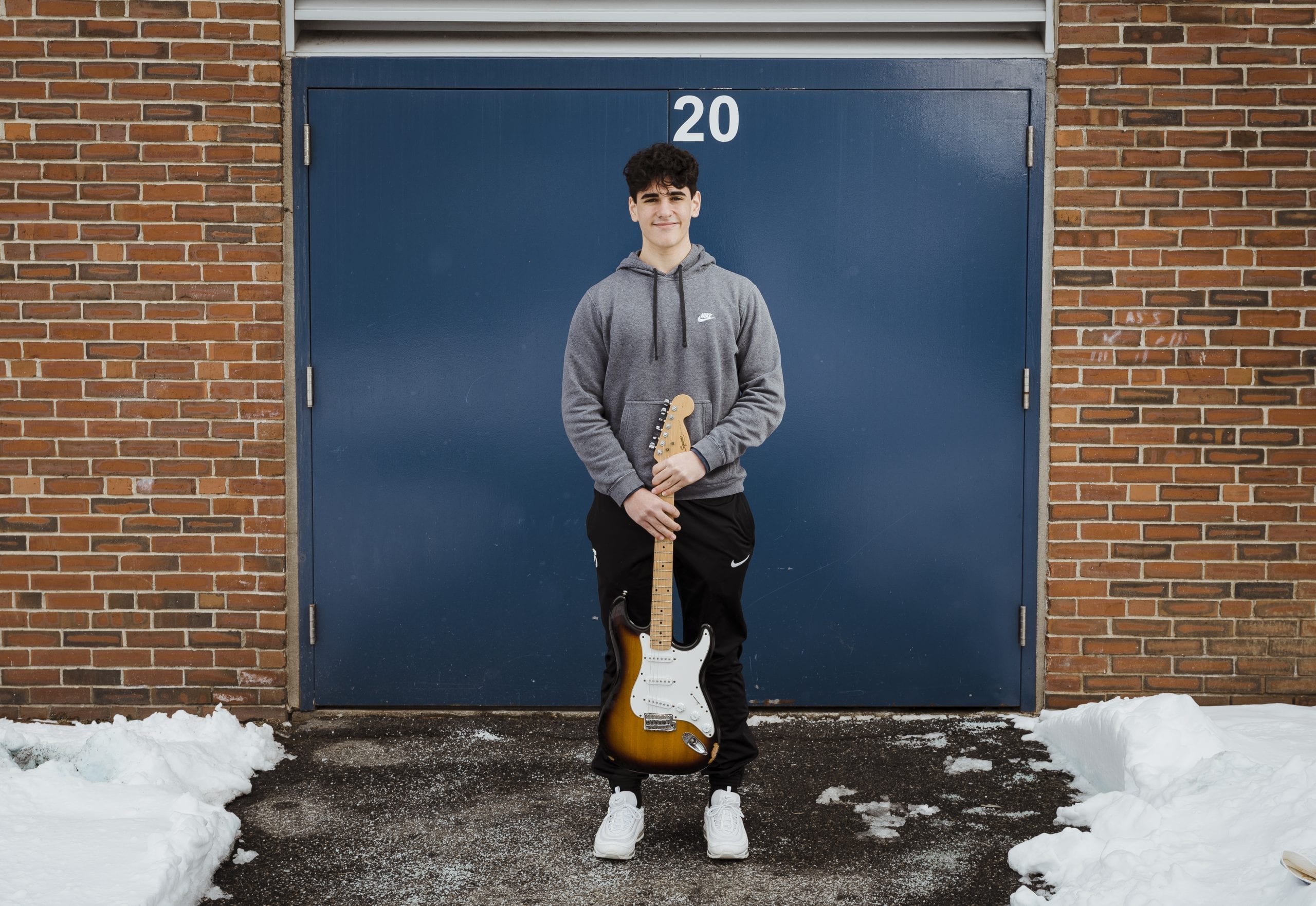LYNNFIELD — For Director Harry Wagg and the Lynnfield High School band, there have been some silver linings to go along with the challenges of playing music during the COVID-19 pandemic.
Since the onset of the pandemic, the focus of the band program has shifted to the elements of music that can be done at a distance — theory, history, composition and production work.
“It allows us to talk about musical elements that sometimes we don’t talk about when we can just play,” said Wagg. “It allows us to think about form, and how to create emotions in a piece of music. There’s a huge benefit to it.”
Wagg has served as the band director at the high school for three years and worked at the elementary schools in Lynnfield before that. He had previously worked for a post-production studio in New York while playing guitar in rock and jazz bands.
“I hope that because of some of the things that are happening now, traditional music education starts to embrace some of these less traditional music-making endeavors,” he said.
Lynnfield High has been focusing more on small ensemble work this year, with a pep band, a small-scale concert band, several jazz/rock bands, and a guitar ensemble.
“The bigger ensembles have been the hardest to rehearse,” said Wagg. “That’s where most of the wind players are, and for most of the year, we haven’t had the ability to play with wind instruments in the building. But the smaller groups have been going pretty well.”
One of the most successful groups is the guitar ensemble, which is safer than wind ensembles or those that feature vocals because the musicians are not forcefully expelling air and germs into the room.
One huge issue that the bands face is an inability to interact with one another in real time.
The guitar ensemble, for example, rehearses with only three kids in a class, while a larger group tunes in virtually. Because of lag in the stream, it isn’t realistic for the kids to all practice together, so when it comes time to play music, the two groups must do it separately.
“Naturally when you play music you want to play music for other people. It’s just weird to not be able to do that in person anymore,” said Adam Ho, one of the in-person members of the guitar ensemble who has played piano since he was five. He recently added the guitar to his repertoire. “You can’t go out and play in the streets.”
Before the pandemic he would sometimes busk outside and play in larger bands.
“It’s more intimate,” he said of the smaller classes. “But it’s odd, and it feels like there’s this emptiness.”
“It’s allowed us to have interesting conversations about song choice and what different songs entail,” said Wagg. “Our repertoire this year can’t be songs where we have to react to one another. They have to be fairly straightforward. It’s interesting to have those conversations, because it’s something we haven’t talked about in the past.”
The smaller ensembles do still play some live music, spaced across the large band room at a safe social distance. The groups that feature singers usually rehearse without vocals, which are recorded in separate rooms and added in later to create virtual performances. This allows kids the opportunity to experiment with music production elements.
“It’s worked really well,” said Wagg of the production focus. “They understand the process intuitively. They’re so aware of digital media that they know what’s going to work and what isn’t.
“I think that there’s a lot of value in playing live music,” he added. “But I don’t think that music production should be discounted as a method of creation. It is the new style of creation for a lot of these kids.”
“I’m mostly interested in theory and production, so the transition wasn’t too hard,” said Domenic Ferrante, a junior in the guitar ensemble who began as a trumpet player before picking up the guitar. “It’s smaller groups, but otherwise not too different.”
Ferrante aspires to continue studying music in college, possibly at Berklee College of Music in Boston.
Wagg hopes that the focus on music production and the success of the guitar ensemble will be able to make the music program more accessible.
“There were kids who weren’t in the band, and they’d play me a track in Logic or Garageband or Ableton and it’s killing,” said Wagg. “It’s hard that those kids have to struggle when finding their place in music programs.”
For sophomore guitar ensemble member Charles Beatrice, playing music is a passion that he only discovered during the pandemic.
“I always thought that it’s pretty amazing to listen to music, but I only started playing this year,” he said as he plucked out the riff from Eric Clapton’s “Layla” on an acoustic guitar. “My friend owned a few guitars, and I strummed it and felt like I had this connection with it.”
Despite the COVID-19 restrictions, he says he has been picking up the instrument pretty quickly.

